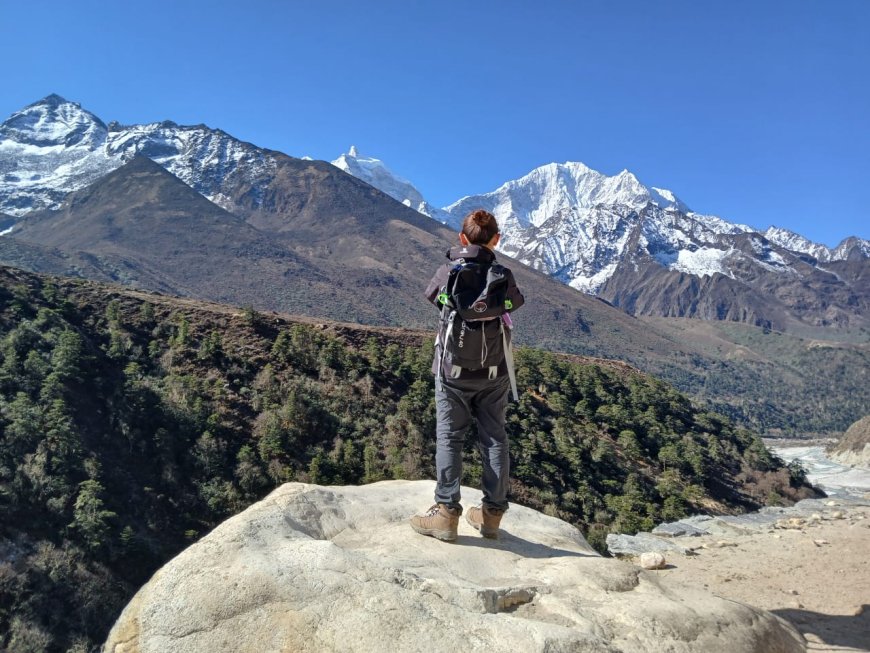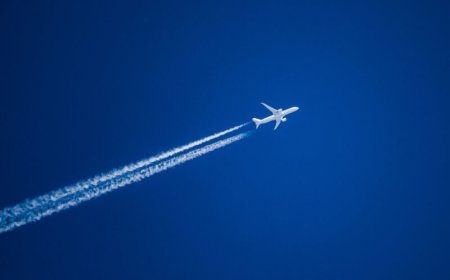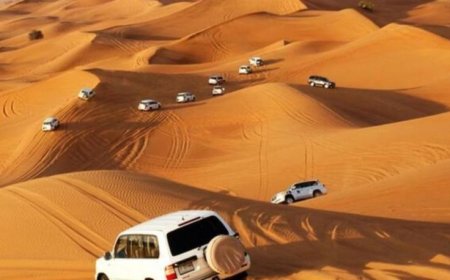How to Manage Your Meals and Hydration on the Everest Base Camp Trail
Take the Everest Base Camp Trek and explore the awe-inspiring beauty of the Khumbu Valley, Sagarmatha National Park, and beyond.

Handling meals and staying hydrated on the Everest Base Camp Tour trail is important for keeping your energy up, avoiding altitude sickness, and just feeling good while you hike. The trick is to plan and stick to a routine. Eating smaller, balanced meals that include carbs, protein, and healthy fats will help you keep your stamina during the day. Common foods on the trail are dal bhat, noodles, soups, and energy bars, all of which give you the calories and nutrients you need. It's best to stay away from heavy, greasy foods since they might upset your stomach.
Staying hydrated matters a lot, too, especially since the high altitude and dry air can make you lose water fast through breathing and sweating. Aim to drink about three to four liters of water each day, even if you dont feel thirsty, to avoid dehydration and help your body adjust. Its smart to use water purification tablets or filters, since clean drinking water isn't always available. Herbal teas and soups can also help with hydration and keeping you warm. Be careful with caffeine and alcohol because they can make you lose more water. Pay attention to how you feel and adjust what you eat and drink as needed. Doing this can boost your endurance and lower the chance of altitude sickness. Good meal and hydration planning are key to a safe and enjoyable trek to Everest Base Camp.
Why Eating Right Matters on the Everest Base Camp Trek
When you're trekking to Everest Base Camp, managing your meals is key to keeping your energy up and helping your body handle the altitude. The tough trails and high elevation mean you need more calories and nutrients. It's important to eat regular, balanced meals loaded with carbs, proteins, and good fats to stay strong and keep your muscles working. Don't skip meals because that can make you tired and slow down your thinking. Traditional Nepalese dishes like dal bhat are nutritious and easy to find on the trail. Taking care of your meals helps with digestion and can help keep altitude sickness at bay. Good nutrition keeps you healthy and energized on your trek.
Staying Hydrated at High Altitude and How to Manage It
Staying hydrated is super important, but its something many people forget about when trekking to Everest Base Camp. The cold, dry air can make you lose fluids through breathing and sweating, and being at high altitude can make you less thirsty, which can lead to dehydration. Make sure to drink at least three to four liters of water each day, even if you dont feel thirsty. Using purification methods like tablets or filters can help ensure your drinking water is safe. Herbal teas and broths can also help keep you hydrated and warm. Try to cut back on caffeine and alcohol, as they can make dehydration worse. Drinking enough water boosts blood flow, helps you adapt to the altitude, and keeps headaches and sickness away, which is crucial for a good trek.
Best Foods for Energy on the Trail
Choosing the right foods is really important for keeping your energy up on the trek to Everest Base Camp. Carbs are your main energy source, so make sure to include things like rice, noodles, bread, and potatoes. Foods rich in protein, such as lentils, eggs, and yogurt, help with muscle recovery. Healthy fats from nuts and seeds provide lasting energy, too. Snacking on energy bars, dried fruits, and nuts between meals can help keep your blood sugar steady. Try to avoid heavy meals that might upset your stomach while trekking. Eating well helps you tackle long days, fight fatigue, and stay focused, making your adventure in the Himalayas a lot better.
When and How Often to Eat for Best Results
When you eat and how often ccanimpact your energy and endurance on the Everest Base Camp trek. Eating smaller meals every three to four hours keeps your metabolism going and prevents energy crashes. Start with a good breakfast to kick off your day of trekking. Have small snacks in the morning to boost your energy before lunch, which should be your biggest meal. Afternoon snacks are great for keeping your energy up until dinner, which should be light yet nutritious. Timing your meals right helps keep your blood sugar steady and aids digestion, reducing the chances of feeling tired or nauseous from altitude. Organizing your meals well makes a big difference in how you perform.
Smart Hydration Tips for Everest Base Camp
Having a solid hydration plan is a must for a successful trek to Everest Base Camp. Carry a reusable water bottle and drink often throughout the day, aiming for about three liters daily. Use water purification tablets or filters to make sure your drinking water is safe, whether from tea houses or natural sources. Drinking herbal teas and electrolyte drinks can help replace minerals lost through sweat. Keep an eye out for signs of dehydration, like headaches or dizziness. Try not to rely too much on caffeine or alcohol, as they can lead to dehydration. Planning your hydration carefully is key to adjusting to the altitude, keeping your energy levels up, and staying healthy on this challenging trek.
Choosing Nutritious Foods on the Everest Base Camp Trail
When you're trekking to Everest Base Camp, picking the right foods is key to staying energized and healthy. Most tea houses and lodges serve local dishes like dal bhat (rice and lentils), soups, noodles, and steamed veggies. Go for meals that are high in carbs and protein to help with endurance and muscle recovery. Steer clear of fried or oily foods, as they can upset your stomach at high altitudes. Fresh fruits and veggies might be hard to find, so it's a good idea to bring along nuts, energy bars, and dried fruit. Eating balanced, local foods keeps you fueled while also supporting the local economy and culture during your trek.
The Importance of Electrolytes and Supplements During Your Trek
Electrolytes are really important for keeping your body balanced and your muscles working well as you trek to Everest Base Camp. At high altitudes, you lose sodium, potassium, and magnesium through sweating and urination, which can lead to cramps and dehydration. Adding electrolyte powders or tablets to your drinks can help replace these minerals. Some trekkers also find vitamins like C and B-complex helpful for boosting energy and immunity. Its smart to check with a healthcare professional before starting any new supplements. Using the right electrolytes and vitamins can help you keep going strong and recover well on your trek.
Tips to Prevent Altitude Sickness with Diet and Hydration
What you eat and drink can affect your chances of getting altitude sickness on your Everest Base Camp trek. Staying hydrated helps your blood flow and makes it easier for your body to adjust to the altitude. Avoid alcohol and caffeine, as they can lead to dehydration. Eating small, light meals that are high in carbs can give you energy and help your digestion. Foods rich in iron, like leafy greens and beans, support red blood cell production. Many trekkers also find ginger or herbal tea to be good for nausea. Pairing the right diet with a slow climb and good hydration can help you handle the altitude changes better and lower the risk of getting sick.
Managing Meals and Hydration on Rest Days
Rest days are really important for getting used to the altitude on your trek to Everest Base Camp, and how you manage meals and hydration on these days matters too. Use your rest days to eat balanced meals to refill your energy and aid recovery. Drink plenty of fluids to help your body adjust. Stay away from heavy or greasy foods that might upset your stomach. A bit of light exercise, like short walks, can help with blood flow and increase your appetite. Keeping an eye on your hydration and nutrition during rest days helps your body prepare for the next part of the trek, keeping fatigue at bay and reducing altitude-related issues.
Tips for Carrying and Storing Food and Water on the Trail
Efficiently carrying and storing food and water is vital for staying nourished on your way to Everest Base Camp. Use lightweight, resealable bags to pack snacks and meals. A good insulated water bottle helps keep your water cool and prevents freezing at high altitudes. Make sure to store food properly to avoid contamination from animals or the environment. Plan your daily portions to keep your pack light while still getting enough nutrition. Refill your water regularly and always purify it before drinking. Managing your food and water well helps minimize waste, keeps you healthy, and ensures you have enough energy throughout your trek.
What Do You Eat on the Everest Base Camp Trek?
On the Everest Base Camp trek, you mainly eat traditional Nepalese food and snacks that give you energy. Dal bhat, which is rice, lentils, and vegetables, is a main dish that gives you a good mix of carbs and protein. You can also find noodle soups, momos (which are Tibetan dumplings), and porridge for breakfast. For snacks, nuts, dried fruits, energy bars, and chocolate can keep your energy up between meals. Its common to drink herbal teas and soups to stay hydrated. Though the food choices may change at higher altitudes, most teahouses offer hearty meals geared toward trekkers. Eating a mix of healthy foods helps you keep up your energy, helps you get used to the altitude, and keeps your digestion on track during this tough trek.
How Do You Drink Water on Mount Everest?
Staying hydrated on Mount Everest can be tricky because clean water is hard to find. Trekkers usually go for boiled or filtered water from lodges and tea houses. Its handy to carry water purification tablets or filters to treat water from streams or taps. Many trekkers use insulated bottles to keep their water from freezing in the cold. Its essential to drink about three to four liters a day to avoid dehydration, which is common at high altitudes. Steer clear of untreated water to skip any chance of getting sick. Drinking enough water helps you adjust to the altitude and keeps fatigue and altitude sickness at bay during your trek.
How to Physically Prepare for the Everest Base Camp Trek?
Getting ready for the Everest Base Camp trek means ramping up your fitness for several months. Do aerobic exercises like running, hiking, cycling, or swimming to build your stamina. Focus on strength training for your legs, core, and back to tackle steep climbs and carry a backpack. Try hiking with a weighted pack on different terrains to mimic the trek. Flexibility and balance exercises can help lower your risk of injury. Also, doing hikes at higher altitudes or simulating altitude changes can help your body get used to it. Keeping up with your training will boost your endurance, cut down on fatigue, and get you mentally and physically ready for the trek to Everest Base Camp.
How to Eat on Mount Everest?
Eating on Mount Everest takes some planning to meet your energy needs in tough conditions. Your meals should be high in calories, easy to digest, and loaded with carbs, fats, and proteins. Many climbers stick to freeze-dried meals, energy bars, nuts, and soups since they are lightweight but still nutritious. Staying hydrated is key, with warm drinks like tea and broth helping to avoid dehydration and cold illnesses. Eating smaller meals often can help prevent digestive issues and keep your energy up. Youll also need to consider the limited cooking options and pack lightweight, compact food. Good nutrition on Everest keeps your strength up and helps you adjust to the altitude.
Conclusion
Eating and drinking right while Everest Base Camp Hike and climbing Mount Everest is crucial for keeping your energy up and staying healthy. A good diet with carbs, proteins, and healthy fats, along with proper hydration, helps with stamina and focus. Safe water practices keep you from getting sick, and eating smaller meals often helps with digestion. Staying fit, along with good nutrition, builds the strength and stamina you'll need for the tough terrain. Knowing what to eat and how to hydrate well can make your Everest adventure more enjoyable and successful.








































